 The author of this brief sketch describing the life of St. Ambrose of Optina, Schema-Archimandrite John (Maslov), was one of the last elders of Glinsk Hermitage and a prolific spiritual writer.
The author of this brief sketch describing the life of St. Ambrose of Optina, Schema-Archimandrite John (Maslov), was one of the last elders of Glinsk Hermitage and a prolific spiritual writer.
Venerable Ambrose of Optina. Photo: days.pravoslavie.ruSchema-Hieromonk Ambrose loved the Lord infinitely; and he gave all the love that his whole being could contain to His Creator through His creation—that is, his neighbors. Out of his love for God he withdrew from the world and took the path of moral self-perfection. The elder’s feat of personal self-perfection and personal salvation was never separated from the feat of his service to the world, just as the love for God in Christianity is inseparably linked to the feat of love for our neighbor.
Fr. Ambrose’s service as an elder began by giving spiritual care to the Optina Monastery brethren. But the elder’s service was not limited to the monastery alone. This ascetic who lived in a little cell succeeded in “extending its walls” to a boundless degree. Everybody—people of all ranks and strata of society, residents of the most remote provinces—knew the humble and clairvoyant Optina elder. Thousands of faithful souls flocked to Optina Monastery to Fr. Ambrose. How often Fr. Ambrose’s cell attendants, yielding to numerous visitors’ requests to inform him of their arrival, would tell the elder: “Father, people are waiting for you.” “Who is there?” the elder would ask. “People from Moscow, Vyazma, Tula, Belev, and other provinces,” the cell attendants would reply. People would wait for a ten-minute talk with Fr. Ambrose for several days. There was a shortage of coachmen to drive between Optina Monastery and Kaluga along with rooms in the numerous hotels of Optina.
Fr. Ambrose would spend all day long among the people who came to him seeking his counsel and who held their instructor in reverence. Giving advice in accordance with the spiritual needs and the level of spiritual development of each individual person, he would go deep into the situation of those who turned to him, discerning their personal disposition and inclinations, lovingly pointing out the best solution. Everybody would leave him comforted and with relieved hearts.
Elder Ambrose’s spiritual experience was so great that he would “read” the thoughts of his visitors, often pointing out their innermost secrets and implicitly revealing them during conversations. Once a nun came to confess her sins to Fr. Ambrose; she revealed everything she could remember. When she finished, the elder himself began to add all she had forgotten. When Fr. Ambrose mentioned one sin, she insisted for a long time that she had not committed it. Then the elder replied: “Forget it! I have said this.” And before he had stopped talking the sister suddenly recollected she had indeed committed that sin. Dumbfounded, she repented from the bottom of her heart. When the elder spoke with someone in public, he would not expose them openly and sharply; instead, he would exhort so skillfully that his admonition was clear only for those to whom it was addressed, despite the presence of crowds of people.
Having gotten to know the saving nature of humility from his personal experience, the elder strove to teach this to his spiritual children. When people asked him the most vital question—what they should do to attain salvation—the elder would answer jokingly: “One should live unhypocritically and behave in an exemplary way, then our cause will be right, otherwise it will be bad”; “You can live in the world, but not like in a noisy place—live quietly”; “We must live on earth just as a wheel turns, where only one point is in contact with the ground, while the rest reaches out upward: but once we lie down, are unable to get up.”1 On the face of it, these are simple and playful words, yet they contain so much meaning.
Fr. Ambrose received visitors, speaking with each individually or coming out to give a general blessing—first to men, and then to women. Sometimes in the summer he would come out into the open to people. The elder, bent over with age, would walk slowly along holding onto sticks, set up from the porch onwards and used as supports, which at the same time kept people from pushing. From time to time Fr. Ambrose would stop, answering the questions the people asked him. Cascades of questions rained down on him from the crowd; he would hear people out attentively. All sorts of questions were addressed to the elder. “Father, how do you bless me to live?”; “Father, what will you give me blessing for: marriage or monastic life?”; “I am dying of utter poverty”; “I have lost all that I held dear in my life. I have no purpose in life”; “An incurable disease continually torments me. I cannot help but complain”; “My children in whom I have invested my whole life and soul have become enemies to me”; “I have lost faith, I do not see the goodness of God. Only curses are on my lips.” There was a permanent flow of questions. Who could they place their trust in? Whose shoulder could they weep on? Who could deliver them from the stony stupor of never-ending suffering and hopelessness? Everybody flocked to the elder as to their last resort. And Fr. Ambrose would stand with his loving heart amid the stream of grief, sins and despair, healing everybody. How many times he solved the most complicated, desperate and involved worldly problems with two or three friendly pieces of advice full of sympathy! Thus one’s destiny was decided as if in passing and important issues were resolved; and every time with the blessing of the grace-filled elder everything turned out all right and the decisions were wise and right. Many people who had some particular job to do only wished to be blessed silently by the elder before the beginning of the work.
But not everybody came to Fr. Ambrose in earnest. Some just took up his time and thus burdened him greatly. He complained about such visitors in his letters: “Old age, weakness, feebleness, too many cares, forgetfulness of many things and numerous futile conversations do not allow me to gather myself. Some tell me that their heads and legs ache; others complain that they have many sorrows; and others explain to me they suffer from anxiety. And I am supposed to listen to them and give advice to them all. And you will not get away with silence—they take offense and feel hurt.” And how hard it was for him to endure the grumbling of those he could not receive immediately due to his sickness. Thus, one day, as the worn-out elder was dragging himself along with downcast eyes among the crowd, he heard someone’s voice behind: “What a spiteful man! You walked past without looking at me!” “This is how we live day after day. And we have the reputation of being unfair to our visitors. This is all because of my weakness and carelessness towards God and people,” Fr. Ambrose wrote in one of his letters. Not only did the elder never grumble about his decrepit state, but he was always cheerful and even joked. And those who grumbled soon began to regret having been impatient and begged the elder to forgive them. Fr. Ambrose would receive visitors till the evening, taking short breaks for a meal and rest. Sometimes, when the elder was weak, he would receive visitors in his cell after dinner. And after the evening prayer rule the monastery brethren would come to him daily to reveal their thoughts.
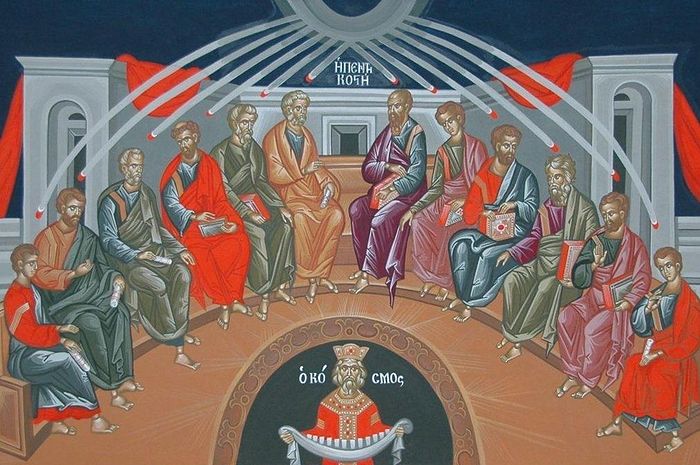 The Feast of the Descent of the Holy Spirit on the Apostles, which this year we prayerfully celebrate on June 7, is the celebration of the triumph of Divine Love, the feast celebrating the unification of all people.
The Feast of the Descent of the Holy Spirit on the Apostles, which this year we prayerfully celebrate on June 7, is the celebration of the triumph of Divine Love, the feast celebrating the unification of all people. 
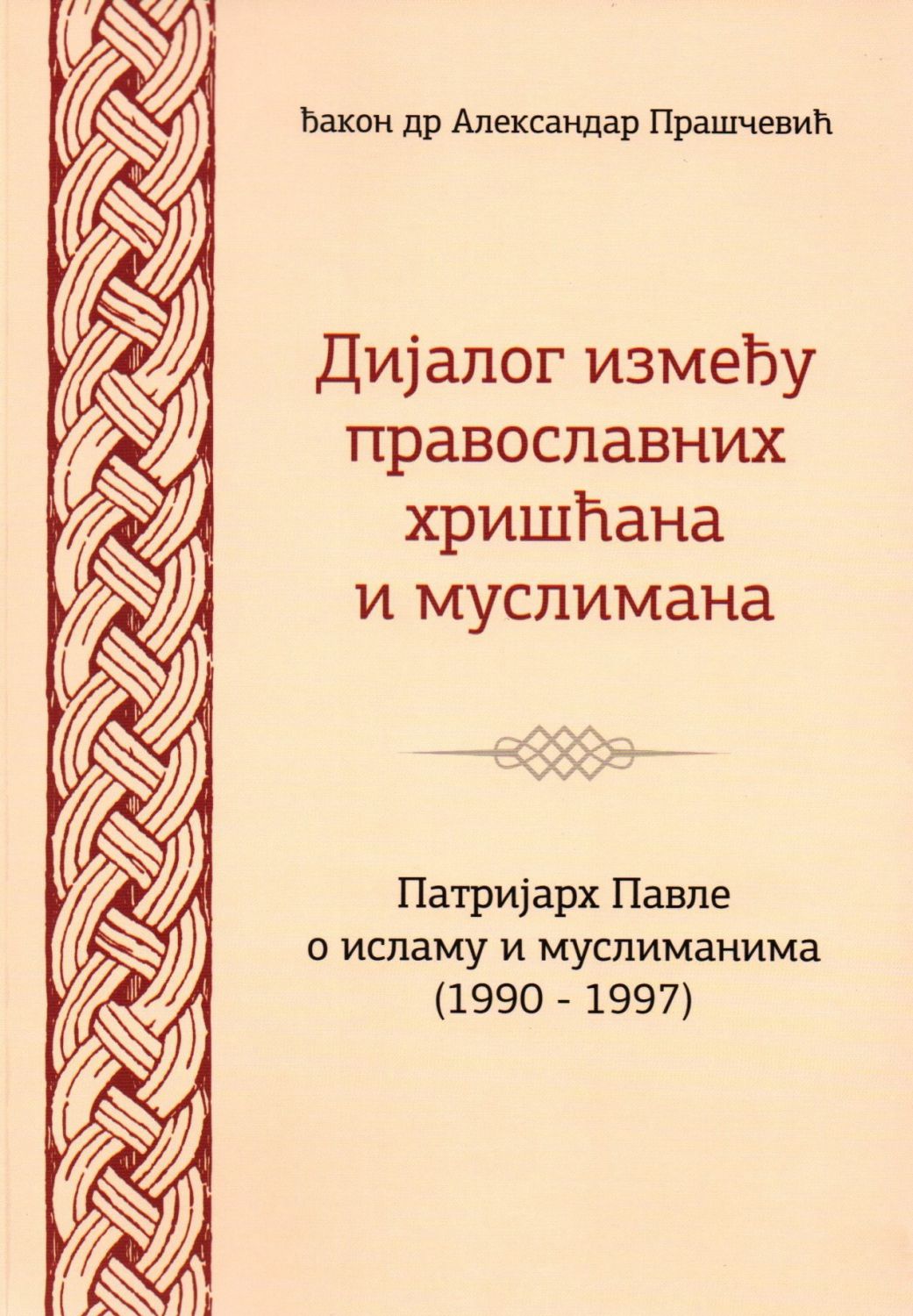 Serbian Orthodox Patriarch Pavle on Islam and Muslims (1990-1997), Author: Deacon Aleksandar Prascevic, ThD., PhD.
Serbian Orthodox Patriarch Pavle on Islam and Muslims (1990-1997), Author: Deacon Aleksandar Prascevic, ThD., PhD.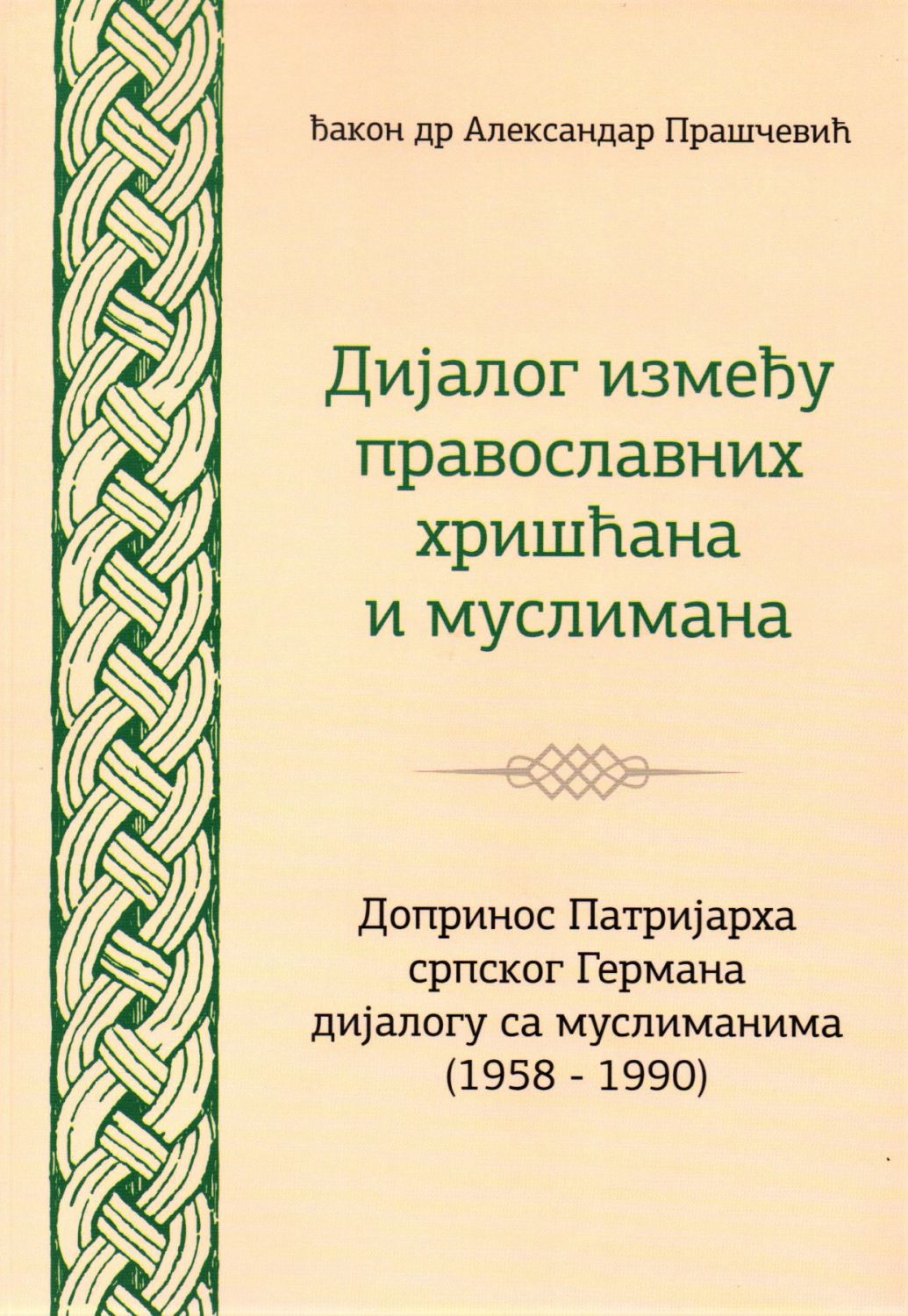 Contribution of Serbian Orthodox Patriarch German to the Dialogue with Muslims (1958 - 1990), Author: Deacon Aleksandar Prascevic, ThD., PhD.
Contribution of Serbian Orthodox Patriarch German to the Dialogue with Muslims (1958 - 1990), Author: Deacon Aleksandar Prascevic, ThD., PhD.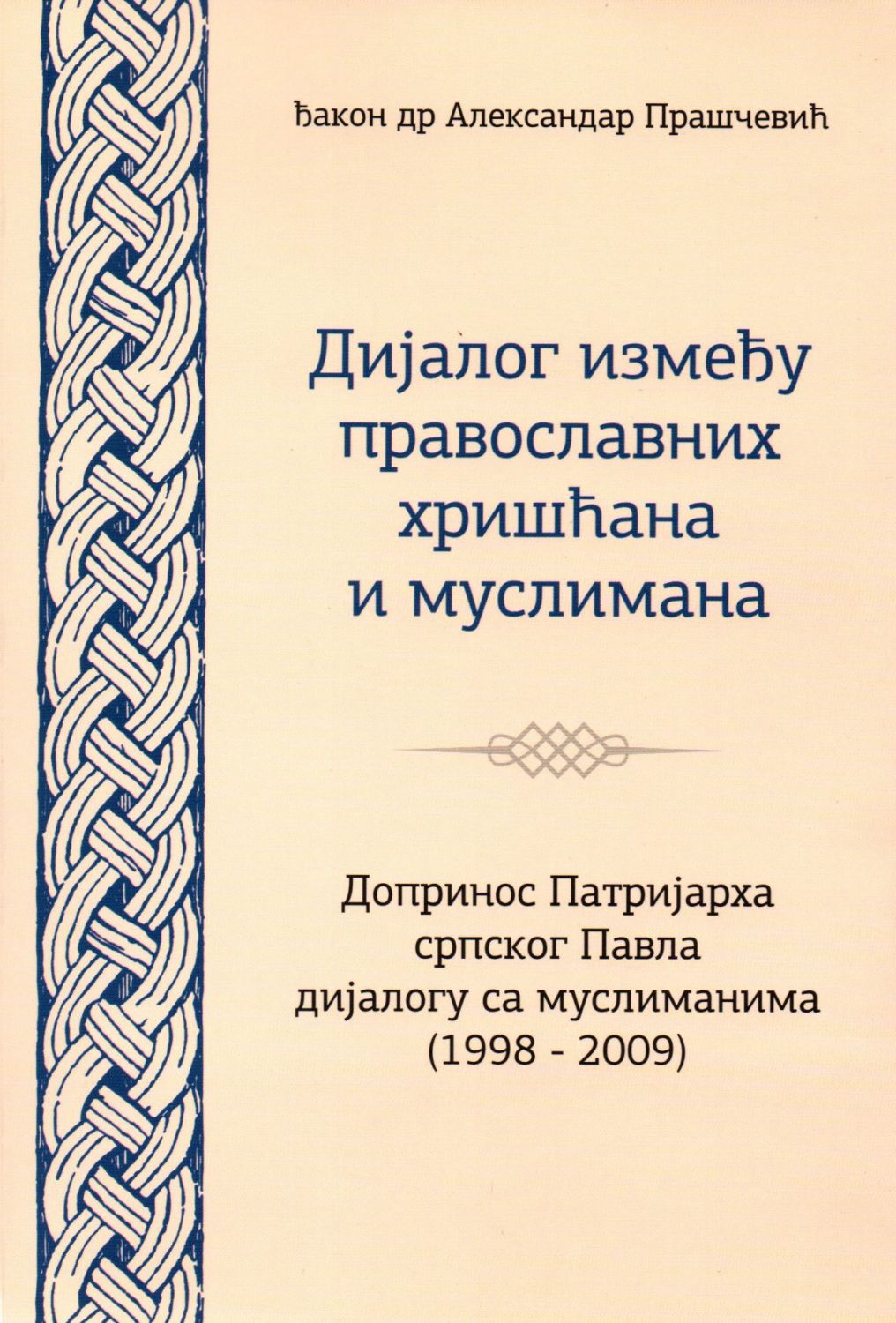 Contribution of Serbian Orthodox Patriarch Pavle to the Dialogue with Muslims (1998-2009), Author: Deacon Aleksandar Prascevic, ThD., PhD.
Contribution of Serbian Orthodox Patriarch Pavle to the Dialogue with Muslims (1998-2009), Author: Deacon Aleksandar Prascevic, ThD., PhD. The author of this brief sketch describing the life of St. Ambrose of Optina, Schema-Archimandrite John (Maslov), was one of the last elders of Glinsk Hermitage and a prolific spiritual writer.
The author of this brief sketch describing the life of St. Ambrose of Optina, Schema-Archimandrite John (Maslov), was one of the last elders of Glinsk Hermitage and a prolific spiritual writer.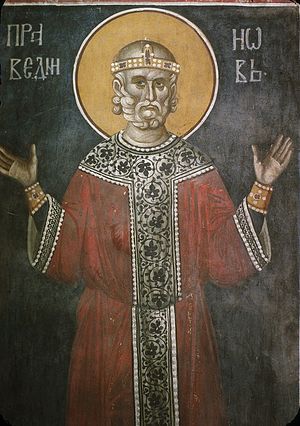 The Old Testament is revealed in the New Testament. The Book of Job reveals its meaning in an amazing way. It is read during the church services during Great Lent. This book prepares us to meet with the Suffering and Risen Christ.
The Old Testament is revealed in the New Testament. The Book of Job reveals its meaning in an amazing way. It is read during the church services during Great Lent. This book prepares us to meet with the Suffering and Risen Christ.